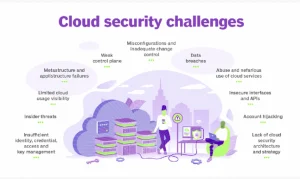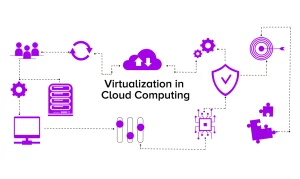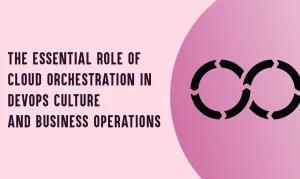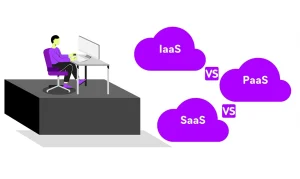With the advent of digital technology, the way businesses operate has drastically changed. Data has become the new currency of the digital age, and it is essential for businesses to embrace this change. Datafication is the process of transforming traditional business processes into data-driven operations. This transformation can provide businesses with numerous benefits that can help them thrive in the digital age. In this blog, we will explore the concept of datafication and how it can transform your business.
What Is Datafication?
It is the process of converting everything into data. It involves capturing data from various sources and analyzing it to derive insights that can be used to optimize business processes. It’s not a new concept, it already exists from past years. However, with the rise of digital technology, it has become more prevalent than ever before. And is not limited to just big data; it encompasses all types of data, including structured and unstructured data.
5 Key Benefits Of Datafication

1. Improved Decision Making: One of the most significant benefits of datafication is that it allows businesses to make better-informed decisions. By analyzing data, businesses can identify patterns and trends that can help them make informed decisions about their products, services, and customers. As a result it helps in improved business decesigns and enhanced profitability.
2. Enhanced Customer Experience: It can help businesses gain a better understanding of their customers. By analyzing customer data, businesses can identify customer needs and preferences, which can help them tailor their products and services to meet those needs. This can lead to enhanced customer experiences and increased customer loyalty.
3. Increased Efficiency: It can help businesses streamline their operations by automating repetitive tasks and optimizing business processes. It leads to improved efficiency and cost reduction.
4. Better Risk Management: It helps businesses identify and mitigate risks. By analyzing data, businesses can identify potential risks and take steps to mitigate them before they become significant issues. This can help businesses avoid costly mistakes and protect their reputation.
5. Competitive Advantage: It provides businesses with a competitive advantage. By using data to make informed decisions, businesses can stay ahead of the curve and outperform their competitors. This can lead to increased market share and increased profitability.
Related:- RPA v/s AI: Choose The Right One For Your Business?
Datafication- Close Look Through Reality

Datafication can take many forms, depending on the industry and the specific business. Here are a few examples of how it is being used in real life:
1. Healthcare: It is being used in healthcare to improve patient outcomes. By analyzing patient data, healthcare providers can identify patterns and trends that can help them diagnose and treat patients more effectively. This can lead to improved patient outcomes and reduced healthcare costs.
2. Retail: It also plays a major role in retail to enhance the customer experience. By analyzing customer data, retailers can tailor their products and services to meet customer needs and preferences. Sales and customer loyalty may both rise as a result of this.
3. Finance: Datafication is being used in finance to improve risk management. By analyzing financial data, financial institutions can identify potential risks and take steps to mitigate them before they become significant issues. This can help protect the financial institution’s reputation and avoid costly mistakes.
Related:-10 Causes Of Slow Website & Proven Methods To Resolve Them
The Essence Of Datafication In Business Operations

The essence of datafication lies in the ability to use data to make informed decisions. With the rise of digital technology, businesses have access to more data than ever before. From customer data to operational data, businesses can use this information to optimize their operations and improve their bottom line.
One of the key benefits of datafication is its ability to improve customer experiences. By collecting data on customer behavior, businesses can better understand their needs and preferences. This information can be used to create personalized marketing campaigns and tailor products and services to meet their specific needs. For example, e-commerce giant Amazon uses data analytics to offer personalized recommendations to its customers, improving customer satisfaction and boosting sales.
It also has the potential to improve operational efficiency. By analyzing operational data, businesses can identify bottlenecks and areas for improvement. For example, a manufacturing company may use data to optimize its supply chain, reducing costs and improving delivery times. Similarly, a retail company may use data to optimize its inventory management, reducing waste and improving profitability.
Another benefit of datafication is its ability to enable predictive analytics. By using historical data and machine learning algorithms, businesses can predict future trends and behavior. This information can be used to make informed decisions about product development, marketing campaigns, and more. For example, a healthcare provider may use predictive analytics to identify patients who are at high risk of developing a chronic disease, allowing them to intervene early and prevent the disease from developing.
It can also enable real-time decision making. By collecting and analyzing data in real-time, businesses can make informed decisions quickly. This is particularly important in industries such as finance and healthcare, where timely decisions can have a significant impact on outcomes. For example, a financial services company may use real-time data to detect fraudulent transactions and prevent financial losses.
Conclusion
Datafication has the potential to transform businesses of all sizes and industries. By collecting, analyzing, and interpreting data, businesses can improve customer experiences, optimize their operations, and make informed decisions. As data continues to become more abundant, businesses that embrace datafication will have a significant competitive advantage in the market.







